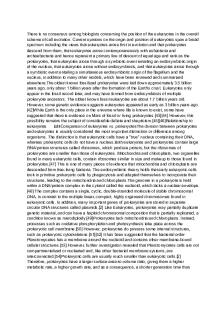Stageoneenglish - Lecture notes 5 PDF

| Title | Stageoneenglish - Lecture notes 5 |
|---|---|
| Course | Tpcs In Lit |
| Institution | Hunter College CUNY |
| Pages | 2 |
| File Size | 63.9 KB |
| File Type | |
| Total Downloads | 15 |
| Total Views | 124 |
Summary
notes on “I’m Every Woman” Black Women’s (Dis)placement in Women’s Language Study...
Description
Tasnia Ahmed Professor Greta Wagle English 250.48 22 September 2016 “I’m Every Woman” Black Women’s (Dis)placement in Women’s Language Study I chose to write about the Black Women’s (Dis)placement in Women’s Language Study by Marcyliena Morgan. I was first attracted by the quote above the title, “I’m every woman.” I heard Whitney Houston’s version of the song and it was about a strong women who supports her man. She takes care of him and makes him a better person. Society tends to believe that a woman needs a man to depend on so I always find satisfaction in viewing, listening, or reading about independent women. The author, Marcyliena Morgan is an associate professor of African American studies at Harvard University whose research includes gender, identity, and language ideology. I remembered reading a foreword of Morgan’s called “Just take me as I am,” where she wrote about her experience of witnessing the first African American woman linguist deliver a tearful and bitter plenary address. She ridiculed her colleagues for the racism and sexism in her field. I started to read the commentary and the title of the first section read “The Race to Feminism.” I felt like “race” is the key word in that title. Race has always been an issue when regarding women and language. I thought about how at the Democratic National Convention, Khizr Khan spoke about his son who was a U.S. soldier and died. He offered Republic candidate Donald Trump a copy of his U.S. Constitution since due to Trump’s values it did not seem as if he head ever read it. Trump responded to Mr. Khan by attacking his wife for remaining silent during the convention. Trump implied that Mrs.
Khan did not speak because of female subservience expected in some traditional strains of Islam. His arrogance made him believe that Muslim women are not allowed to talk unless permitted to when the truth is, Mrs. Khan could not speak because she was so devastated remembering the loss of her son. It is a bit off topic, but relates in terms of race and women’s language. In the commentary, Morgan noted the significant gaps in our knowledge of African American language and gender practice. It is effortless to just assume how races are without even trying to learn about them. Morgan discussed the absence of work on ordinary interactions between a man and woman is due to racist stereotypes about African American gender roles. The idea of what a “normal” woman is was someone who was white and mainly middle-class. These radicalized and class-based concepts of women made it impossible to locate and black women in women’s writing. Black along with other nonwhite women in language and gender research are admissions on how race is a significant factor in framing gender for all aspects of study including language. Back to the time of slavery, black women were treated as property and had the rights to their bodies taken away from them. In the 1960s where racial segregation was enforced, blacks were powerless when interacting with whites. When interacting, they had to use nearly every one of the verbal and nonverbal expectations of women’s speech that Lakoff described. They were to use formal address when speaking to a white person (politeness), listen and not speak unless spoken to (passivity), and use hedges and tag questions. Morgan described the features of “women’s language” characterized the racial inferiority that shows how African American women today variously exploit and reject elements of white “women’s language” when placing value on their identity....
Similar Free PDFs

5 - Lecture notes 5
- 4 Pages

Chapter 5 - Lecture notes 5
- 15 Pages

Chapter-5 - Lecture notes 5
- 6 Pages

Chapter 5 - Lecture notes 5
- 83 Pages

Tutorial 5 - Lecture notes 5
- 3 Pages

Chapter 5 - Lecture notes 5
- 4 Pages

Imagen 5 - Lecture notes 5
- 1 Pages

Quiz 5 - Lecture notes 5
- 11 Pages

Chapter 5 - Lecture notes 5
- 20 Pages

Chapter 5 - Lecture notes 5
- 4 Pages

Lesson 5 - Lecture notes 5
- 22 Pages

5 Statehood - Lecture notes 5
- 4 Pages

Prokaryotes 5 - Lecture notes 5
- 2 Pages

5. Conduct - Lecture notes 5
- 4 Pages

5. Emotions - Lecture notes 5
- 8 Pages
Popular Institutions
- Tinajero National High School - Annex
- Politeknik Caltex Riau
- Yokohama City University
- SGT University
- University of Al-Qadisiyah
- Divine Word College of Vigan
- Techniek College Rotterdam
- Universidade de Santiago
- Universiti Teknologi MARA Cawangan Johor Kampus Pasir Gudang
- Poltekkes Kemenkes Yogyakarta
- Baguio City National High School
- Colegio san marcos
- preparatoria uno
- Centro de Bachillerato Tecnológico Industrial y de Servicios No. 107
- Dalian Maritime University
- Quang Trung Secondary School
- Colegio Tecnológico en Informática
- Corporación Regional de Educación Superior
- Grupo CEDVA
- Dar Al Uloom University
- Centro de Estudios Preuniversitarios de la Universidad Nacional de Ingeniería
- 上智大学
- Aakash International School, Nuna Majara
- San Felipe Neri Catholic School
- Kang Chiao International School - New Taipei City
- Misamis Occidental National High School
- Institución Educativa Escuela Normal Juan Ladrilleros
- Kolehiyo ng Pantukan
- Batanes State College
- Instituto Continental
- Sekolah Menengah Kejuruan Kesehatan Kaltara (Tarakan)
- Colegio de La Inmaculada Concepcion - Cebu
